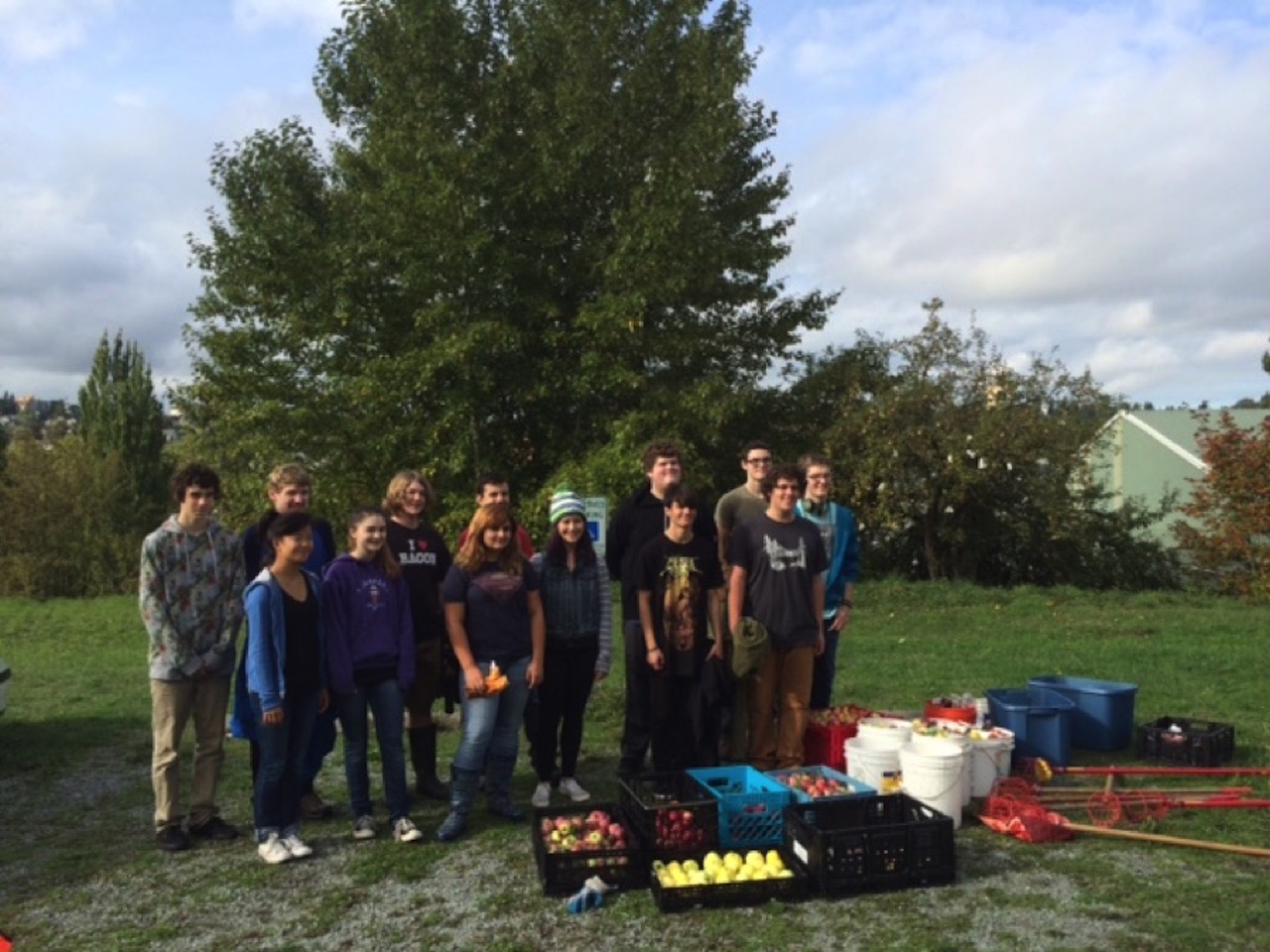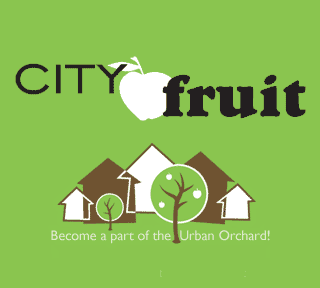The AmeriCorps VISTA worked alongside the Orchard Steward Coordinator to create a schedule of monthly work parties at the 14 parks City Fruit stewards. The VISTA determined the site needs and recruited volunteers using various outreach mechanisms. In general winter activities include restoration, pruning, weeding and clearing debris. Spring activities focus on pest prevention, restoration and weeding. Summer time begins harvesting of cherries, plums and figs, general restoration, mulching and creating tree rings, weeding and watering fruit trees. The autumn season tends to be the heaviest harvest with apples and pears as well as cleanup of fallen fruit.

How to Create a Work Party:
Tools Needed:
● Shovels
● Rakes
● Pruners
● Loppers
● Aprons/reflective vests
● Trash Bags
● Rice Knives
● Buckets
● Wagon
● Weed Wrench: only needed if site has Scotch Broom (cytisus scoparius)
● Gloves: request rubber if invasive blackberry is present on-site.
What to Pack/wear:
● Water Bottle
● Hat/Sunscreen/Sunglasses
● Close-Toed Shoes
● Garden Appropriate Clothing
Work Party Event Steps
Volunteers Arrive
● Greet volunteers/Direct to Parking
● Have volunteers sign-in
On-site Orientation:
● Introduce your organization and how it relates to the work to be done.
● Talk about the specific project for the day:
o Safety first: Volunteers should assess their own skills and abilities. Don’t put volunteers on ladders who do not feel comfortable there.
o Talk about tasks as determined by work party planning form and designate which tools are needed.
o Instruct volunteers to get gloves and choose tools and projects to work on.
Harvesting:
● Mark fruit trees to be harvested with flags.
● Fruit for donation: Should have minimal markings or “bug holes.” In general 1-2 holes made by codling moth is acceptable for food pantry donation.
● Fruit for secondary uses: This fruit with excssive apple maggot and/or codling moth markings (nearly 50% of the fruit) mean the fruit is inedible and may not be suitable for donation. This fruit is still accepted by some food pantries whose clients can take as much as they want for making cider, apple butter or cooking. Check with harvest manager if the food pantry allows this donation. Chicken owners may also be interested in taking scraps for feed.
● Fruit for compost: This fruit with over 50% pest damage or has visible mold and may come from the ground. Dispose of in local yard waste or city compost container. Do not compost on-site even if available. Pests can continue their lifecycle in residential compost systems because temperature will not get hot enough to kill maggots. Reinfestation can occur the next year.
Wrap up the Work Party:
● Make sure nothing is left in the orchard
● Pack up tools
● Thank volunteers
● Weigh produce, document
● Document volunteer hours in Salesforce
● Send thank you note to volunteer group leader if applicable


